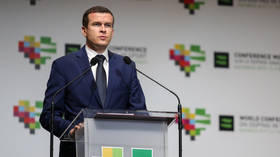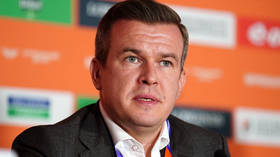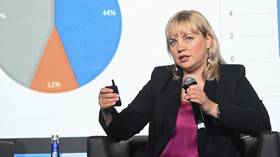World anti-doping boss warns Russia

Russia should not expect its anti-doping agency to be automatically reinstated when its two-year ban expires next month, World Anti-Doping Agency (WADA) president Witold Banka has said.
The Russian Anti-Doping Agency (RUSADA) was declared non-compliant by WADA in 2019 and handed a four-year ban after allegations of tampering with laboratory data.
That sanction was halved upon appeal at the Court of Arbitration for Sport (CAS) in 2020, and is due to end on December 17 of this year.
Banka was re-elected to his post for a second three-year term on Friday, and discussed the issue of Russia at a press conference in Montreal.
“The process for reinstatement doesn’t end on the 17th of December, in fact the process only starts on that date,” Banka said in comments shared by Reuters.
“Through the three phases of that process, compliance would be robustly assessed.
“And of course, we will need to verify each and every one of the reinstatement conditions... not simply accepting anyone’s word for it.”
The Polish WADA chief said his organization was not “naive” and accused Russia of committing “the most awful crime against clean sport.”
“We know that trust in Russia and its anti-doping system is extremely low and of course there is a reason for it,” claimed the official.
The ban imposed by WADA followed sanctions already levied because of long-running allegations of state-sponsored doping in Russia – something the country has vehemently denied.
The doping scandal cost many Russian athletes their place at the 2016 Olympics in Rio de Janeiro, while others were only cleared to compete at the 2018 Winter Games in PyeongChang as ‘Olympic Athletes from Russia’.
The claims of laboratory manipulation emerged after RUSADA had been reinstated in 2018, and meant Russian athletes were again forced to compete at the 2020 Tokyo Games and 2022 Beijing Olympics under neutral status.
Currently complicating the full return of Russia to the global sporting fold is the recommendation by the International Olympic Committee (IOC) in February for Russian and Belarusian athletes to be banned because of the conflict in Ukraine.
RUSADA and WADA are also at loggerheads over the anti-doping investigation into teenage Olympic figure skater Kamila Valieva, with the latter organization expressing dissatisfaction with how the case has been handled in Russia.
WADA has filed a complaint with CAS, where it is seeking a four-ban for Valieva, who was aged 15 when she tested positive for banned heart drug trimetazidine.
RUSADA, headed by director general Veronika Loginova, has insisted that it has followed all the necessary steps outlined by WADA on the roadmap for being declared compliant come December.
Commenting on Banka’s latest remarks, the head of the Russian Wrestling Federation, Mikhail Mamiashvili, said they were not unexpected given the current climate.
“A whole range of measures are already working [in Russia against doping]. Why does WADA not see this work?” asked Mamiashvili, speaking to RIA Novosti.
“Because they are highly politicized. These topics go together inextricably.”














